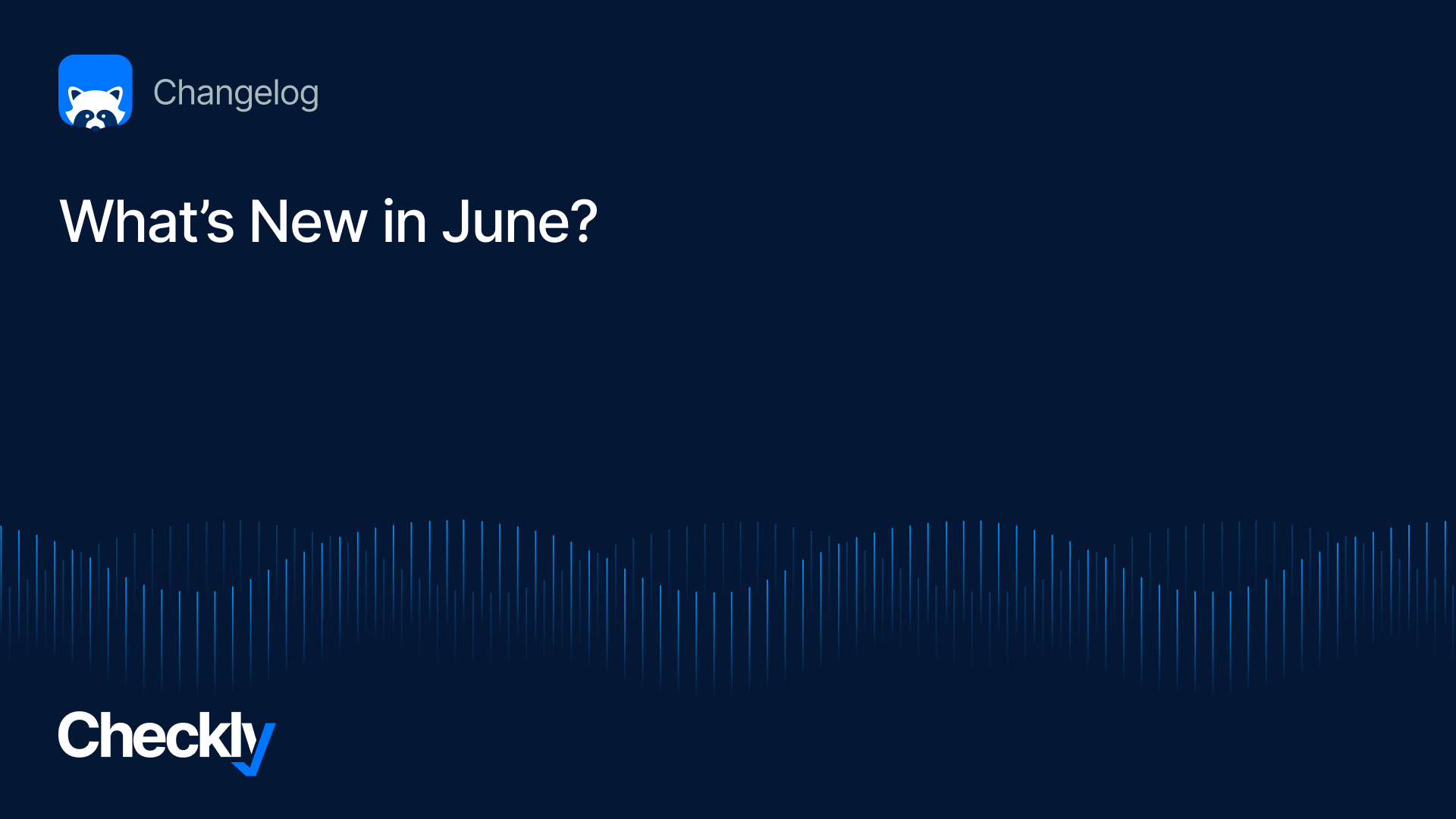June 23rd, 2025
Monthly update

What’s New in June
We’ve shipped a ton of new stuff since the last changelog digest:
➡️ The Easiest Way to Move Your Setup to Code
Converting your Checkly setup to code has been simplified with the new import command. Starting with version 5.4.1, the Checkly CLI now lets you import UI-created resources into your repository, making it easy to switch from a UI-driven workflow to a code-first workflow, powered by Monitoring as Code.
If you are managing your Checkly setup from the web UI today, and you want to migrate to a fully code-driven workflow, the new import command is for you.
In case you haven’t, please install the CLI first by following these steps.
Simply run this command in your repo and follow the steps to complete the import of all your UI assets:
$ npx checkly import With the checkly import command, you can:
Move your existing UI setup into your code base
Keep your monitoring history and check relationships intact
Review and test before committing anything
Finalize the transition when you’re ready
Read all the details here.
🤖 Checkly AI Update: Root Cause, Domain Knowledge and Bring Your Own Model
We shipped some big new updates for our Checkly AI features to help you assess and triage any Playwright failures better and (much) quicker, including:
Impact Analysis and Root Cause for Playwright Checks
We’ve upgraded our model and added more data sources like network logs and your script code to get higher fidelity answers to the question: “Why did my Playwright-based check fail and who’s impacted?”

Add Domain Knowledge with the Tag Description Editor
To make the end-user impact analysis as descriptive as possible, you can enrich any tags you use in Checkly in the Tag Description Editor. This data is then used as context by Checkly AI to give you more accurate descriptions that match your organization’s internal lingo.
Bring Your Own Model
By default, Checkly AI works with OpenAI GPT-4.1, but you can now bring your own LLM from a preferred supplier. We have built-in support for Azure-hosted models and Google Gemini models.
This is currently available upon request for Enterprise customers.
🚀 Group Overrides Are Now Optional
Group-level settings for Scheduling, Locations, Retries, and Alerting were previously always enforced. Every check in a group automatically inherited these settings with no way to opt out. That’s no longer the case.
You can now choose when to apply shared configuration. Use overrides to standardize settings across checks, or turn them off to manage check config individually. Groups can now act more like folders, giving you full flexibility.

UI users: You’ll now see checkboxes next to each override property in the group settings, letting you opt in or out as needed.
Monitoring as Code (MaC) users: The new
CheckGroupV2construct in CLI v6.0.0 enables the updated behavior. See the full release update for more information. Note: Support for Terraform and Pulumi is coming soon.
👉🏼 Learn more in Checkly Groups Update: Organize Checks Your Way.
🕵🏻 Developer Experience
Fully qualified account URLs: Links to the Checkly UI now include the account ID in the URL. This ensures that when switching between multiple accounts, you’ll no longer land on a 404 if you weren’t active in the target account. Instead, you’ll be taken straight to the correct resource. Existing links without account IDs will continue to work.
We’ve increased the list of IP addresses we use to run checks. The API endpoints are already updated with the new IPs, but if you manage manually an allowlist of Checkly IP ranges, make sure to include the new ones:
IPv4: 84.16.252.216, 84.16.252.217, 84.16.252.218, 84.16.252.219, 84.16.252.220, 84.16.252.221, 84.16.252.222, 84.16.252.223
IPv6: 2a00:c98:4007:20:1::/112, 2a00:c98:4007:21:1::/112, 2a00:c98:4007:22:3::/112
You can now configure whether check results on dashboards are clickable: This option is available under the “Look and feel” section in your dashboard settings. We’ve turned it off by default to prevent unwanted behavior and made it configurable for more control.
Retry API checks on network errors only: You can now configure API checks to retry only on network-level failures like timeouts, DNS issues, or connection resets. Learn more in the developer docs. Currently available in the UI only. CLI, Terraform, and Pulumi provider support is coming soon.
Got feedback? We’d love to hear from you!
You can share your feedback on our feedback hub or connect via the Checkly community Slack.
Happy monitoring!